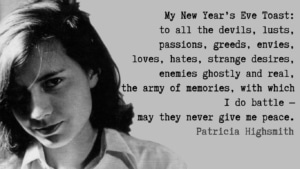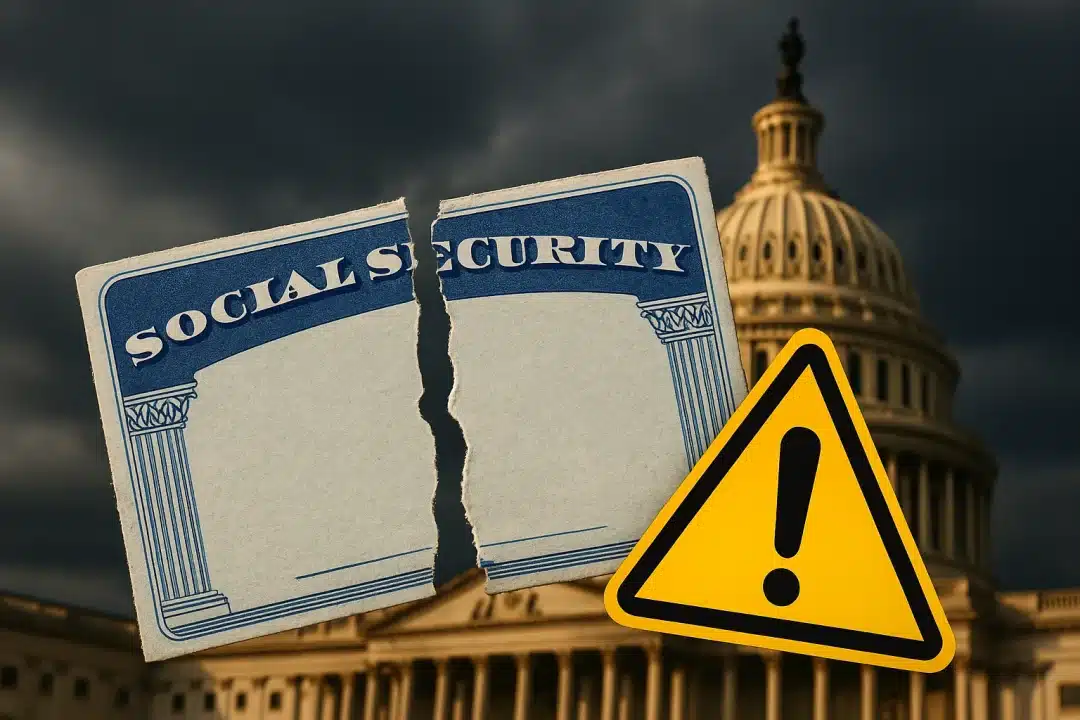Author Patricia Highsmith, in her journal on December 31, 1947
2:30 A.M. My New Year’s Toast:
To all the devils, lusts, passions, greeds, envies, loves, hates, strange desires, enemies ghostly and real, the army of memories, with which I do battle—may they never give me peace.
I love this so much.
Highsmith wasn’t exactly a great person – a racist and antisemite – but still, her words on this particular night in 1947 mean a lot to me.
I’ve struggled with post-traumatic stress disorder as a result of, among other things, a violent armed robbery when I was 21 years old.
While I’m in a far better place than ever before in terms of mental health, PTSD remains a constant hum in the background of everything I do. It’s always there, unforgettable, immutable, and relentlessly altering how I see the world.
Therapy has brought my PTSD under control, but it’s never entirely cured me. Never completely mitigated its influence on how I think, feel, and live my life.
I’ve been told many times that therapies like EMDR (Eye Movement Desensitization and Reprocessing Therapy), Cognitive Behavioral Therapy, and especially EFT (Emotional Freedom Techniques or “tapping”) have proven to be exceptionally effective at eliminating the power of PTSD over patients completely. I’ve been urged to give these methods a try by people who care about me and many strangers who know about my condition and want to help.
I’ve avoided all such therapies for one simple reason:
PTSD is an integral part of me. It’s honed, sharpened, strengthened, and, most importantly, helped me become the relentless person I am today. It sits in the back of my mind, quietly humming away, constantly reminding me of the fragility of life and the precipice where I once stood. It’s attached to violence and terror, of course. The worst moment of my life. A moment I would never wish upon another human being. Never wish upon my younger self.
Yet it’s also a moment that, if given a chance, I don’t think I would ever undo.
It was awful beyond imagination. Crippling at many points in my life. But impossible to imagine living without.
There are admittedly moments when PTSD becomes more than just a background hum, and in those moments, it’s absolutely, positively no fun. Difficult and distressing and even debilitating. But thanks to therapy, those moments are fewer and farther between than ever before, and I’m far better at managing them when they arrive.
And they may be worth the struggle. Again, PTSD is not something any human being in this world should ever have to endure, and yet, endure it, I will, even with opportunities to possibly rid myself of it entirely.
When something becomes a fabric of your being, it’s hard to imagine stripping it away, even when that fabric is coarse, frayed, and at times unwieldy.
I’ve talked about this with Elysha, and she oddly, surprisingly agrees. After nearly 20 years together, she understands how PTSD has helped me become who I am and how it’s an essential part of my identity.
The thought of eliminating it completely frightens me. It’s an undiscovered country that I cannot begin to imagine.
I suspect Patricia Highsmith would understand and agree as well. She did not wish for peace on New Year’s Eve in 1947. She did not hope for success or ease or happiness. She did not yearn for freedom from pain or strife.
Instead, she hoped that “all the devils, lusts, passions, greeds, envies, loves, hates, strange desires, enemies ghostly and real, the army of memories, with which I do battle—may they never give me peace.”
Yes. That makes sense to me. A whole lot of sense.






